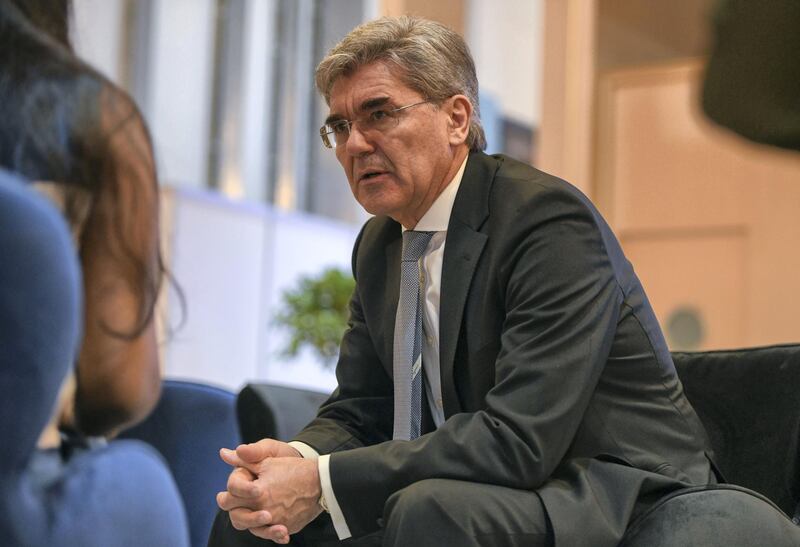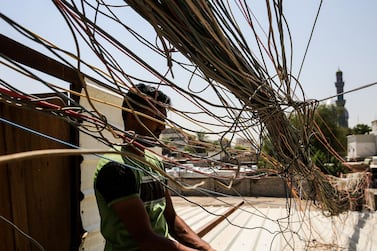The US threat of sanctions against Iraq following the recent escalation in tensions between Washington and Tehran "was not helpful", said Siemens chief executive Joe Kaeser, who affirmed the company's commitment towards power rehabilitation in the war-torn country.
"We need to deal with what we need to deal with. I think putting sanctions on something just because you don't get your will is maybe also not always helpful," he told The National in an interview in Abu Dhabi.
Iraq has been caught in the crossfire following the US assassination of Iran's top military commander near Baghdad's main airport on January 3. Baghdad, a close ally of Tehran, denounced the killing as a violation of its sovereignty and gathered parliamentary approval for the expulsion of US troops from the country.
The US rejected Iraq's decision and also threatened to freeze the country's account with the Federal Reserve, where Opec's second-largest producer has deposited cash generated from oil revenues.
Iraq has been courting large multinational energy companies such as Siemens and GE to rebuild its damaged utilities as well as reduce gas flaring, which has led to billions of dollars in lost revenue over the past decade. Siemens is executing a $15 billion (Dh55bn) roadmap for the reconstruction of power infrastructure in the country.
There were no plans to scale back Siemens' commitment to the Iraqi power development scheme, said Mr Kaeser.
"We know how to do it. We did 14.4 gigawatts in Egypt in two and-a-half years and we really know how to do it," he said.
More contracts have been signed to develop power infrastructure in Iraq, the chief executive noted, declining to specify the value of the contracts or the volume of new capacity additions.
As part of its roadmap for Iraq, Siemens will build a 500 megawatt gas-fired power plant in Zubaidiya, south of Baghdad, as well as upgrade 40 gas turbines with upstream cooling systems. Siemens will also undertake the installation of 13 substations across Iraq.
In September, Siemens signed a $1.3bn agreement to rebuild two Iraqi power plants damaged by ISIS.
The firm will undertake rebuilding of the Baiji 1 and 2 power plants, which are located 250 kilometres north of Baghdad and will add 1.6GW of capacity when completed. The plants were ruined in the takeover of Baiji by ISIS in 2014-15, which damaged to the country's largest refinery — a 310,000 barrels per day facility. Rebuilding the power plants will be critical to getting the refinery back online. It will also help the city's cement factory get back up and running, as well as powering thousands of homes in adjacent areas.
Mr Kaeser said the latest escalation in geopolitical tensions had led the company to be more mindful of the safety of its employees but said there had been no evacuations of staff from Iraq.
Siemens is also "deeply engaged" in Saudi Arabia's gas power and renewables sector. The kingdom launched its third round of tenders for renewables projects last week, with a view to adding 1.2GW of solar photovoltaic capacity to the grid.
"Currently, the kingdom is looking into privatising most of the power plant assets to make sure they're being managed effectively and we're in the middle of it. That's also true for the renewable energy sector, which is mostly solar but we're in the middle of it and we look forward to contributing to it ," said Mr Kaeser.








